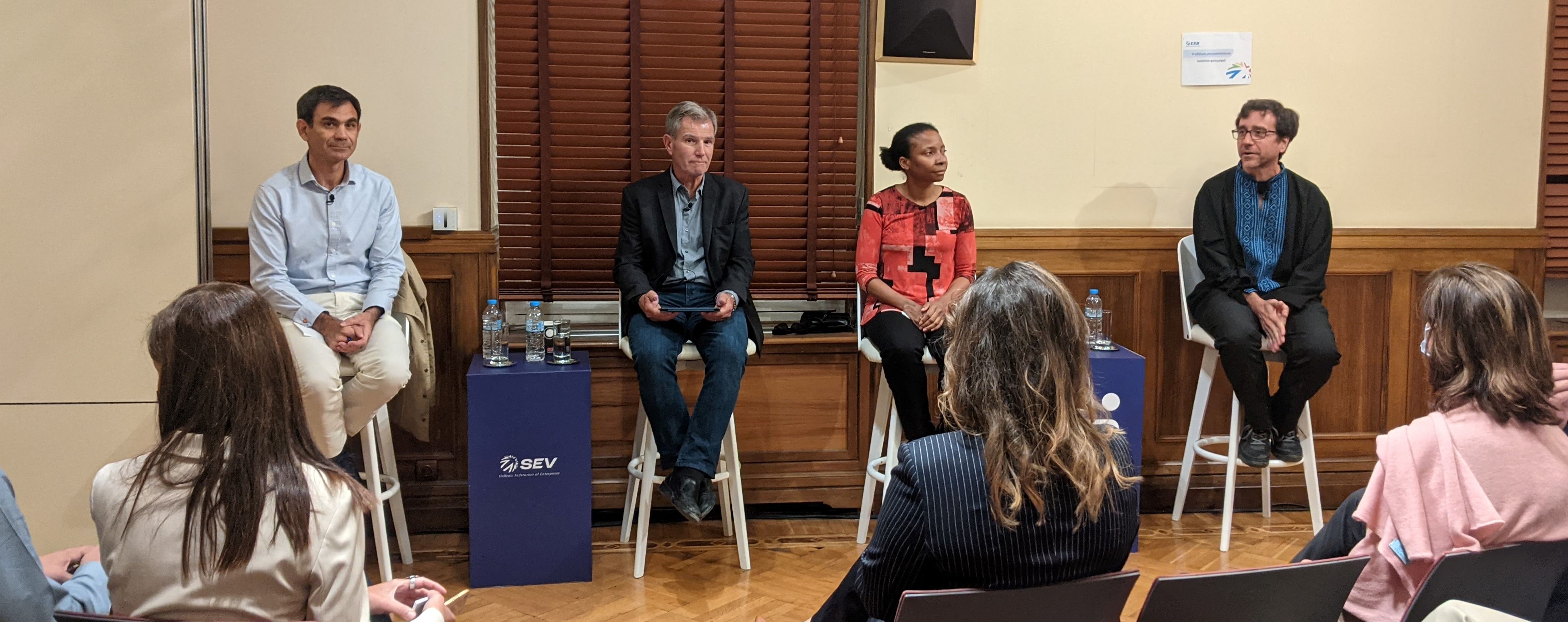Highlights of the Fireside Chat with Steve Ciesinski & Jill Ford

On October 6th, Innovative Greeks, together with Athroa Innovations and iGrow Ventures, had the pleasure of hosting at SEV an event on “How to Build a More Cohesive Innovation Ecosystem in Athens: leveraging key insights from two pioneers in the USA”. Toli Lerios, retired mentor capitalist and friend of our guests, led the discussion, which was moderated by Mihalis Boutaris, Athroa’s Director, with the support of Niki Siropoulou, CEO of iGrow.
What are the 8 pillars that innovators and entrepreneurs point to build a strong ecosystem? What are your insights about how the Greek innovation ecosystem could adopt/apply some best-practice initiatives towards becoming stronger and more cohesive?
The primary indicator is access to important and large markets. According to Steve, Greece can compare somehow with Chile. Chile is not only a very small market, but also its location is not advantageous in terms of accessing large markets. If someone started a company in the US, he could look at the US as a big market. But if he’s in Chile or Greece, he must explore the possibility of exporting; he must look at his greater region, then he has to look beyond his region and, ideally, look globally, if possible.
It is also important to have access to talent. In Silicon Valley, many people have worked for startup companies. These people can cope with “near-death” experiences like for example, dealing with situations where a company is close to going out of business. Every Silicon Valley company that's been successful has had multiple “near-death” experiences.
A third important factor is to have access to early-stage capital as well as later-stage capital. In Greece, there was angel capital and some early-stage capital, but only a few VC firms have improved since that time. One of the areas that will continue to evolve in Greece is having growth capital. If there's no growth capital in Greece, the founder will have to go elsewhere. Now, this could be limiting for Greek startups, as a foreign investor will have to understand the Greek laws to be able to invest in that company.
Another crucial ingredient is government regulations and cooperativeness, as well as support and empathy for startups. Apart from capital, Steve supports that one would also need coaches, mentors, and board members for all these small companies. The final point is the most important: culture. Culture is on many levels. The culture, for example, in Silicon Valley is that founders in similar startup companies and similar industries will meet and exchange even semi-secret information. This way, they end up understanding more about their business and walk away smarter. And maybe they can even start working together to build a new industry.
How critical do you think is the presence of such “Innovation Districts” to increase the cohesiveness of an ecosystem?
Jill urged us not to think of the innovation district as the only place where innovation can happen but to recognize that innovation can happen throughout the city or region or even a country. Innovation districts are essentially physical places or networks just based on a collective set of initiatives that the ecosystem is working on. It's really important to start with what are the outcomes and then work backward: to set clear goals on what is the one overarching goal that the community is shooting for. With the outcomes in mind, the region can define what the right steps are to produce those outcomes, what are the different organizations need to be involved, and define the role that each of these organizations is going to be playing.
It's especially helpful to have an organization also identify the person who is acting as the orchestrator of the region's movement towards producing those outcomes. In some specific examples from Detroit, Jill described how she and her team looked at the entire city as the innovation district. You also need to consider what support for the quality-of-life employees will have as they're coming in or deciding if they want to stay as these companies are growing.
Setting specific goals is also very important. For example, what difference do you want to see in the number of investments that are raised by companies in the region or the number of new startups and the number of jobs that are being created and filled within the region?
Finally, it is key to think about the role that the region plays in the global economy. You start by understanding what your assets are, and this is something that must be a candid conversation. It's okay to understand that maybe some areas are weaker than others but pick where your strengths are and then start to play on that. The diaspora that Greece has in places like the US and other countries is an asset that is waiting to be utilized. You basically have brand ambassadors who are already distributed, and this gives you the opportunity to do things like having engagement with startups that want to have Greek companies as suppliers, as talent, and as board members. And then also to look at ways that investors from abroad would be interested in engaging with Greek startups as well. This gives the opportunity for Technology Partnerships and exchanges that can happen so that you create a set of relationships and visibility that does not stop at the regional border.